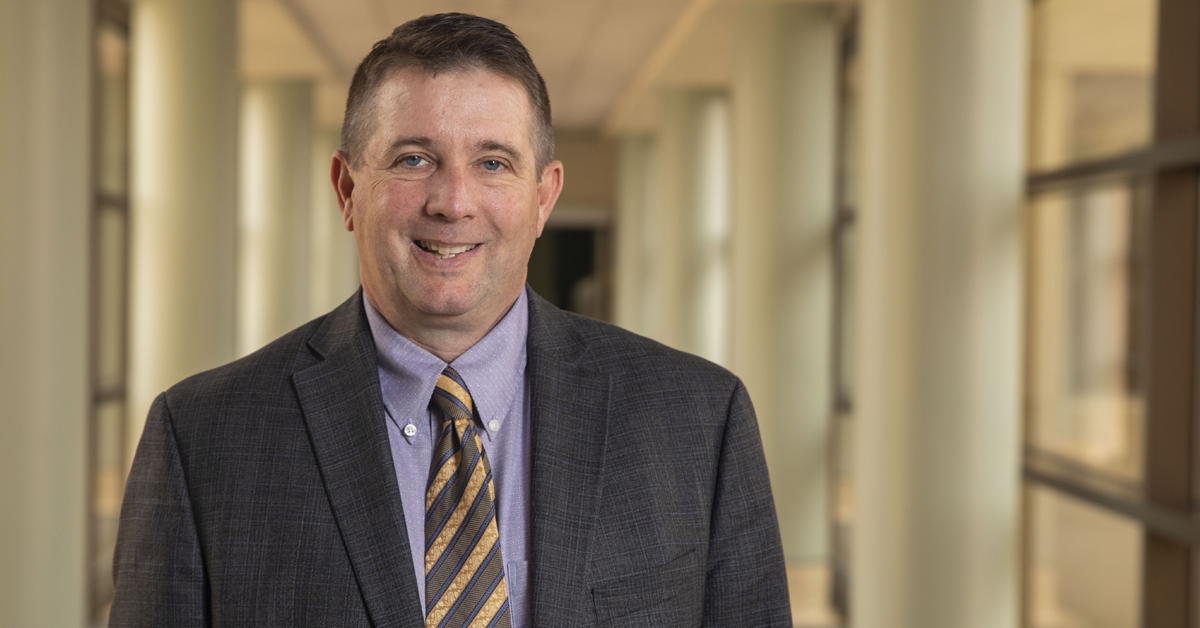Graduates Continue to Amaze Us as They Embark on the Future

Initially an entity within the Texas Tech University Health Sciences Center (TTUHSC) School of Medicine, the Graduate School of Biomedical Sciences first opened its doors in 1972. The first faculty and students were housed in Drane Hall on the Texas Tech University (TTU) campus. From the beginning, students from across the United States moved to the high plains of the Llano Estacado and brought together a vision for their own future that shaped the mission of the Graduate School of Biomedical Sciences. Our success in this path is evident in the accomplishments of our early students, many of whom have had exemplary careers.
In 1994, under the leadership of Dr. Barbara Pence, the Graduate School of Biomedical Sciences became an independent school. As it continued to grow, the school looked for opportunities to create new academic research programs by putting students at the forefront of medicine and scientific advancement. In 1996, the school collaborated with the School of Pharmacy to create the Pharmaceutical Sciences Ph.D. program. The graduate program in pharmaceutical sciences is designed to educate students for careers in pharmaceutical industry, academia and federal regulatory agencies including the FDA.
In 1998, to assist in recruiting outstanding students, Dr. Dan Hardy helped develop the Summer Accelerated Biomedical Research program. Subsequently, early in the 2000s and in collaboration with the late Dr. David Knaff at TTU, Dr. Hardy developed a masters in biotechnology program., Our school also developed a Graduate Medical Sciences M.S. (GMS) track where the curriculum is designed for students seeking additional preparation for medical school or whose goal is a teaching career in medical education. GMS graduate students are imperceptibly embedded in the first-year medical curriculum and participate alongside medical students in class, lab and small group activities. During the second year, they teach in first-year medical school classes. In the past 10 years, GMS enrollment has increased more than tenfold and 90 percent of graduates are accepted to medical school where they excel.
Most recently, a Master in Public Health (MPH) program was added to provide students with the knowledge, skills and values needed to succeed in careers that bridge medicine and public health. Dr. Theresa Byrd, chair, led the first class admitted in 2014. Subsequently, very generous donations from a group of Abilene stakeholders created a state-of-the-art, new public health building in Abilene. Their first class started in 2015, overseen by Dr. Julie St. John. In 2018, the MPH program was accredited and offered completely online. Today, enrollment is over 100 students.
Many of our students complete dual degrees including the M.D./MPH program or the M.D./Ph.D. program (in conjunction with the TTUHSC School of Medicine) These programs are rapidly growing.
In the past few years, Graduate School of Biomedical Sciences students have been awarded more fellowships/scholarships than ever before, our student indebtedness is low, and the average time to earn a Ph.D. is less than 5 years. All Biomedical Sciences Ph.D. students have fully-funded research assistantships including paid tuition and fees.
Every year, Graduate School of Biomedical Sciences students organize and oversee Student Research Week as a showcase for their accomplishments. The week includes exceptional student presentations, a research competition, a fundraising banquet and keynote speakers of international acclaim, including several past speakers who were Nobel Prize Laureates or National Academy of Science members. This event has grown from 62 students in 1998 to nearly 300 students from all TTUHSC schools and campuses.
Our graduates continue to amaze us as they embark on research careers in academia, industry and government, teaching the next generation, developing cures and implementing regulations for better health in our world. I am extremely proud of the values, integrity, diversity and success of our students, and I greatly look forward to the continued growth and prosperity of our school.
Brandt L. Schneider, Ph.D., is the dean of the Texas Tech University Health Sciences Center Graduate School of Biomedical Sciences.
Related Stories
Celebrating Veterans: TTUHSC’s General Martin Clay’s Legacy of Service and Leadership
From his initial enlistment in the Army National Guard 36 years ago to his leadership in military and civilian health care management roles, Major General Martin Clay’s career has been shaped by adaptability, mission focus and service to others.
Texas Tech University Health Sciences Center School of Nursing Named Best Accelerated Bachelor of Science in Nursing Program in Texas
The TTUHSC School of Nursing Accelerated Bachelor of Science in Nursing (BSN) program has been ranked the No. 1 accelerated nursing program in Texas by RegisteredNursing.org.
TTUHSC Names New Regional Dean for the School of Nursing
Louise Rice, DNP, RN, has been named regional dean of the TTUHSC School of Nursing on the Amarillo campus.
Recent Stories
National Academy of Inventors Names TTUHSC Faculty Senior Members
The National Academy of Inventors (NAI) has designated two current and one former TTUHSC faculty researchers as Senior Members.
The John Wayne Cancer Foundation Surgical Oncology Fellowship Program at Texas Tech University Health Sciences Center Announced
TTUHSC is collaborating with the John Wayne Cancer Foundation and has established the Big Cure Endowment, which supports the university’s efforts to reduce cancer incidence and increase survivability of people in rural and underserved areas.
TTUHSC Receives $1 Million Gift from Amarillo National Bank to Expand and Enhance Pediatric Care in the Panhandle
TTUHSC School of Medicine leaders accepted a $1 million philanthropic gift from Amarillo National Bank on Tuesday (Feb. 10), marking a transformational investment in pediatric care for the Texas Panhandle.
